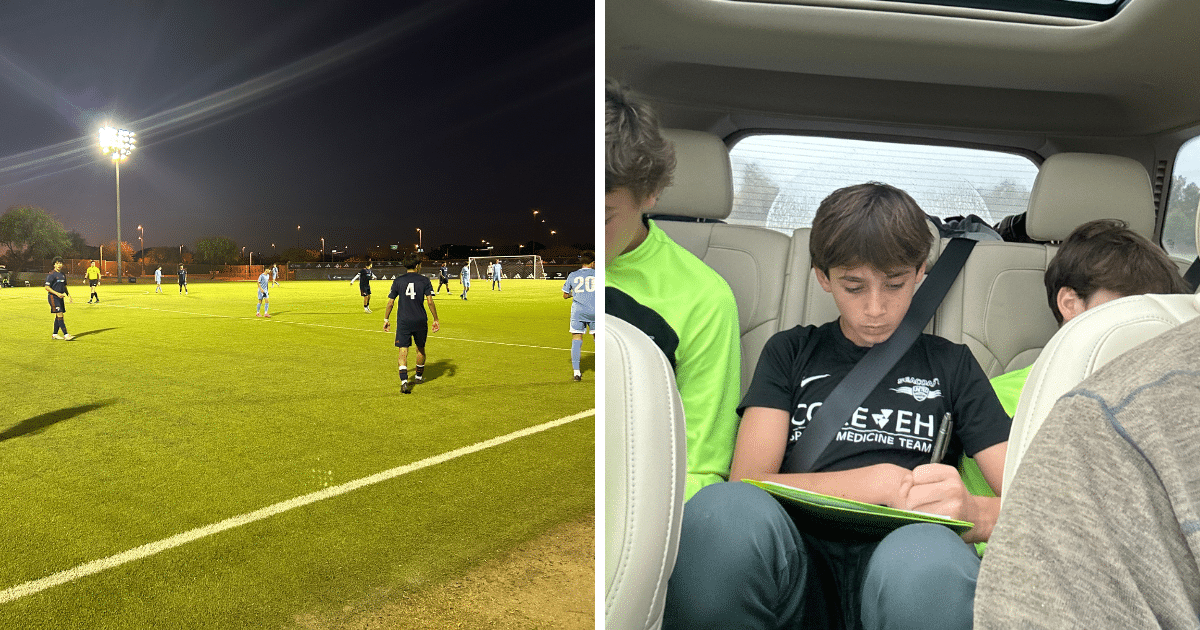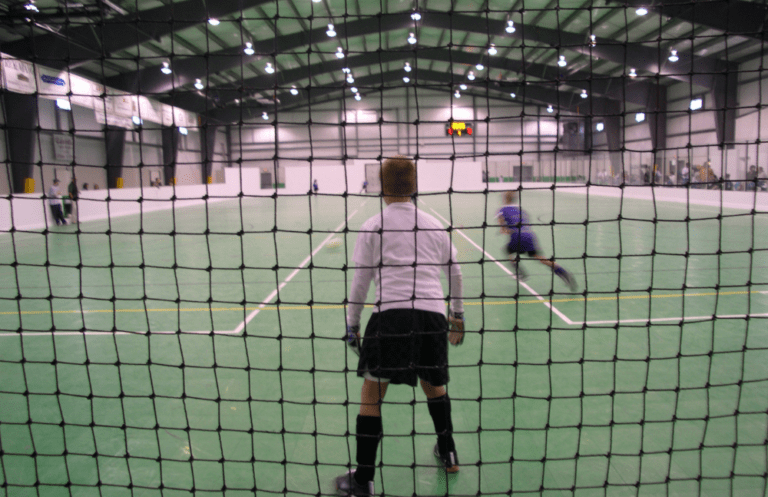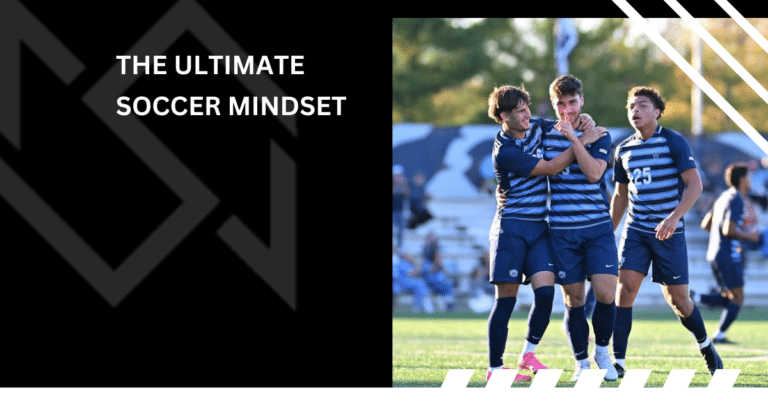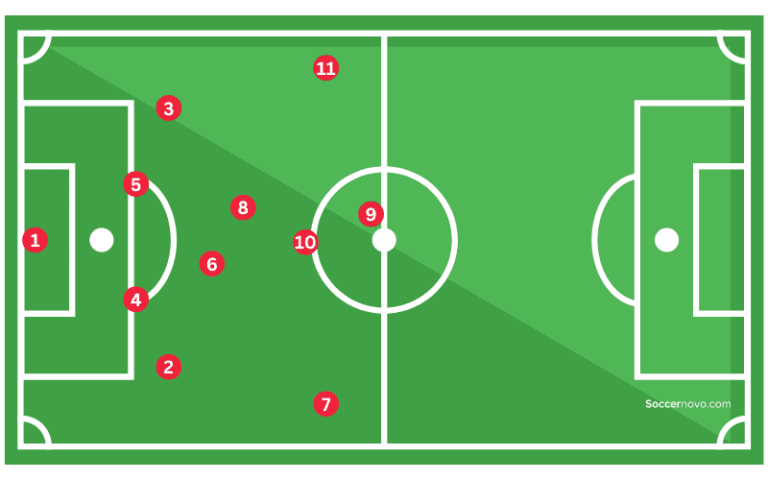Balancing Academics and Athletics: Tips for Soccer Players

One of the most challenging aspects of being a student-athlete is balancing it all. Trying to juggle homework, soccer practices, and everything in between can leave you stressed.
It’s no secret that soccer is a demanding sport that requires a lot of time, energy, and dedication. But, as a soccer player, you’ll also want to excel in your academic pursuits to succeed in life. As many of us old people say, “Soccer isn’t forever!”

To achieve success both on and off the field, it’s essential to find a balance between your academic and athletic commitments. This means developing strong time management skills and creating a structured daily schedule that includes dedicated blocks of time for both academics and athletics. It also means prioritizing your well-being by getting enough sleep, maintaining a healthy diet, and staying hydrated.
In this article, we’ll explore some expert tips and strategies for balancing academics and athletics for soccer players. Whether you’re in middle school, high school, or college, these tips will help you find the balance you need to succeed in both your academic and athletic pursuits.
Time Management Strategies
In a very distracted world, time management is so crucial for everyone. By taking control of your day, you can accomplish more of what you want and less of what doesn’t matter. Here are some time management strategies that can help you balance your academics and athletics:
Prioritizing Tasks
One of the most important time management strategies is prioritizing your tasks. You should prioritize your tasks based on their importance and deadlines. For instance, if you have an important exam coming up, you should prioritize studying over soccer practice. Similarly, if you have an important soccer game coming up, you should prioritize practice over studying. In each scenario, you should find time to do the other thing but two things can be a priority.
Scheduling Practices and Studies

Keeping a tight calendar and scheduling your practices and studies can help you manage your time effectively.
You should create a schedule that includes dedicated blocks of time for both academics and athletics. Allocate time for study sessions, practice, and essential downtime. You should also plan ahead and schedule your practices and games around your study sessions and exams.
Now, I get it. I have a high schooler and he just takes each day in stride. There’s no calendar for him but he’s able to juggle it all because he knows what’s a priority and what’s not. If you find yourself struggling to remember what you have each day, try keeping a calendar.
Utilizing Downtime
Utilizing your downtime effectively can help you balance your academics and athletics. For instance, you can use your drives to practice to review your notes or do your homework. Assuming you don’t get sick in the car.
By maximizing your downtime, you can make the most out of your day!
Physical and Mental Well-being

Your physical and (especially) your mental well-being is super important. By taking care of yourself, you are essentially prioritizing YOU over soccer and school. And, I think this is the right path if you want to accomplish everything in front of you. Here are some key areas to focus on:
Importance of Nutrition
As a soccer player, you need to fuel your body with the right nutrients to perform at your best. Make sure to eat a balanced diet that includes plenty of protein, whole grains, fruits, and vegetables. It’s also important to stay hydrated by drinking water throughout the day.
It’s easy to eat healthy. Unfortunately, it’s also easy not to eat healthy. The choice is yours.
Adequate Rest and Recovery
Sleep is everything! Don’t ignore getting enough rest and recovery time so you can perform at your best. Aim for 7-9 hours of sleep each night to allow your body to repair and recharge.
In addition to sleep, make sure to take rest days and incorporate active recovery techniques like foam rolling and stretching into your routine. This will help prevent injury and keep you feeling your best. It sounds stupid, but it does work. Your body will thank you.
Stress Management Techniques
Balancing academics and athletics can be stressful, so it’s important to have strategies in place to manage stress. Consider practicing mindfulness techniques like deep breathing or meditation to help reduce anxiety and improve focus.
Regular exercise can also be a great stress reliever. In addition to soccer practice, try incorporating other forms of physical activity like yoga or biking into your routine.
What To Do If It’s Too Much
If you are struggling to balance your academics and athletics, it can be overwhelming. Don’t worry, there are steps you can take to make it more manageable.
First, talk to your coach or athletic director. They may be able to help you adjust your training schedule or find a tutor to help with your academics. You can also talk to your teachers and academic advisor to see if there are any resources available to help you. I guess what I’m trying to say is, don’t go at it alone! People are there to support you.

Second, get everything on paper. List the things you need to get done and prioritize them. This is especially true for your academics. More than likely, you’re looking forward to soccer practice but are getting anxious about what schoolwork lies ahead of you. By writing it all down, you may notice that it’s really not a lot. Heck, you might be able to tackle it in an evening.
Take breaks when you need them. It’s important to give your mind and body a rest when you are feeling overwhelmed. Go for a walk, take a nap, play with your dogs, or do something you enjoy to help you relax and recharge.
Long-Term Planning for Student-Athletes
This is more for high school and college players but long-term planning is essential for student-athletes to achieve their goals and succeed in their careers. Here are some tips for long-term planning for student-athletes.
Setting Academic and Athletic Goals
Setting academic and athletic goals is the first step in long-term planning for student-athletes. You need to identify what you want to achieve in both areas and create a plan to achieve those goals. Otherwise, you may just be going through the motions.
For example, you may want to maintain a specific GPA or improve your finishing skills to score 7 goals in the upcoming season. Write down your goals and put deadlines around them. Keep them handy where you can see them every day.
Career Planning for Athletes
Career planning for athletes is also crucial in long-term planning. It is essential to have a rough plan for your soccer pursuits or after it all ends.
If you absolutely love soccer, you may want to consider pursuing a coaching career, starting a soccer academy, or pursuing a career in sports management. It is important to research different career options and create a plan to go after what you might like to do.
Always Look at the Bigger Picture
As a student-athlete, it’s important to keep in mind that soccer won’t last forever. While it’s understandable to focus on the present and strive for success on the field, it’s equally important to prioritize your long-term goals, such as academic achievements and career aspirations.
I understand that it’s difficult to see ten years ahead but if you can get a clear picture of what you might want to pursue, you’ll be ahead of the game. You can match your actions today with your ambitions for tomorrow.
Remember that balance is key. While it’s important to work hard and strive for success, it’s equally important to take care of yourself both physically and mentally. Make sure to get enough sleep, eat a balanced diet, and take breaks when you need them. By prioritizing your health and well-being, you can ensure that you’re able to perform at your best both on and off the field.
At the end of the day, be the best version of yourself in everything you do!

Written By: Beau Bridges
Beau is the founder of SoccerNovo, dedicated to helping players and parents navigate the youth soccer landscape. As a former youth coach and soccer parent, he shares insights on player development, recruiting, and the ever-evolving soccer scene in the U.S.
Let’s connect





